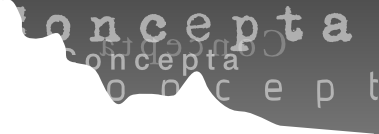Concepta objectives
A dramatic shift in the academic study of political and social thought has taken place in recent decades. In particular the belief that concepts are timeless has been replaced by an emphasis on their historicity and temporality. The so-called linguistic turn has played an important role in this process. Central concepts function as sites of action around which vocabularies, rhetoric and discourses of political language turn.
The changing and contested nature of concepts provides scholars with a point of departure for analysis. New methodologies pay attention to not only the stable and the conventional but to disorder and change as well. Concepta aims to employ recent linguistically orientated methods – primarily the conceptual history associated with Reinhart Koselleck and contextual intellectual history associated with Quentin Skinner – to the analysis of key issues in the humanities and social sciences.
Concepta takes an open approach to methodological questions. The following stances are kept in mind in the planning and organising of research training in conceptual analysis and in the research work promoted by Concepta.
-
Concepta focuses on the use of concepts and ideas by actors who pursue and realise goals in political and social life; such processes can fruitfully be analysed in connection to the migration, translation, diffusion and employment of concepts.
-
Concepta’s starting point lays in the analysis of ideas and concepts but the analysis aims always to account for social and political change. Thus the linkages between conceptual and institutional developments through processes of legitimisation and institutionalisation are central to Concepta.
-
Concepta proceeds by means of comparative studies of concepts and ideas in both time and space. Only through comparisons between cultural and linguistic spheres, and between different time periods, it is possible to establish the specificities of a nation’s and polity’s political and social trajectory.
Studies grounded on these basic methodological assumptions contribute to research in the humanities and the social sciences in two major ways. On the one hand the focus on the contingency and political alternatives will both further our understanding of modern political concepts and ideas, and restore concepts and ideas that have disappeared from contemporary political discourse. On the other hand the focus on change in the languages of politics will further our understanding of agency as a problem, especially on the linkages between the use of concepts and the achievement of political and social change.

